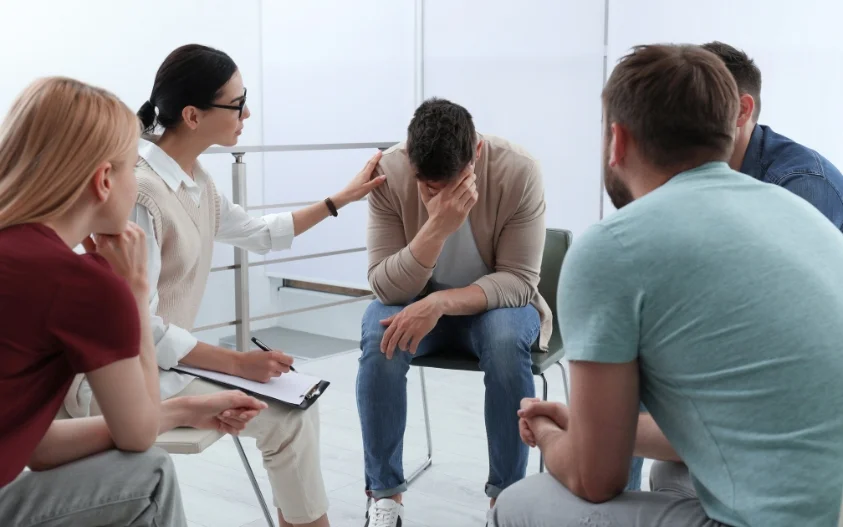24/7 Helpline:
(866) 899-221924/7 Helpline:
(866) 899-2219
Learn more about PTSD Treatment centers in Floyd County
PTSD Treatment in Other Counties

Other Insurance Options

Absolute Total Care

Health Net

CareSource

BlueShield

Self-pay options

Optima

UnitedHealth Group

Carleon

Molina Healthcare

MHNNet Behavioral Health

Aetna

State Farm

Excellus

PHCS Network

Group Health Incorporated

CareFirst

Sutter

Lucent

Oxford

EmblemHealth

Our Place – Drug and Alcohol Education
Our Place - Drug and Alcohol Education is a non-profit rehab located in New Albany, IN. Our Place - ...

LifeSpring Health Systems – Floyd County Office
LifeSpring Health Systems is a premier provider of co-occurring mental health and substance use diso...

Groups
Groups is private healthcare company providing outpatient treatment for opiate addiction using weekl...












































